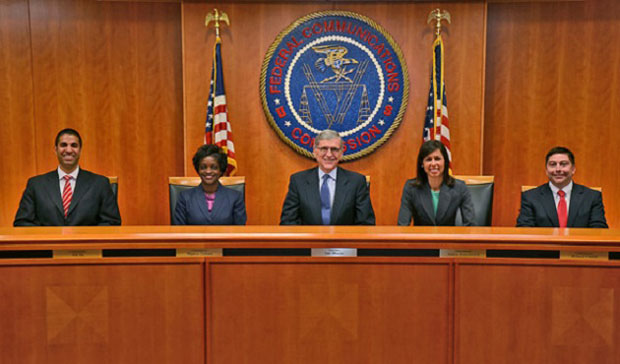FCC Chairman Tom Wheeler Unveils Plan To Reclassify Internet As Title II Utility
We reported earlier this week that the FCC was expected to issue a new net neutrality proposal this week, and as we can now see, it hasn't taken long to get a follow-up. In fact, FCC chairman Tom Wheeler has gone the extra mile by penning his own piece for Wired so that we could learn about this new proposal in layman's terms.
As we hoped, the FCC will in fact be proposing that our Internet access will be classified as Title II, which would put it in the same category that power companies fall into. As far as many people are concerned, including myself, Title II is the only way we can guarantee that our Internet remains "open", free of so-called fast lanes.

Flickr: Stephen Melkisethian
In his editorial, Wheeler puts it bluntly, "Using this authority, I am submitting to my colleagues the strongest open internet protections ever proposed by the FCC. These enforceable, bright-line rules will ban paid prioritization, and the blocking and throttling of lawful content and services."
One thing we've been a little unsure about is how this Title II classification would affect mobile Internet. Well, Wheeler tackles that, as well: "I propose to fully apply — for the first time ever — those bright-line rules to mobile broadband."
With this move, Wheeler says that the FCC will be modernizing the Title II classification, "tailoring it for the 21st century", and goes on to confirm that the FCC will not dip its hands into rate regulation and things of that nature.
Opponents to net neutrality claim that Title II classification would stifle innovation and growth, but Wheeler doesn't seem to see it that way, saying, "The internet must be fast, fair and open. That is the message I’ve heard from consumers and innovators across this nation. That is the principle that has enabled the internet to become an unprecedented platform for innovation and human expression."
Given Wheeler's previous position on net neutrality, I'm impressed at just how much his opinions have changed -- and for the better. Voting on this proposal is expected go take place later this month, so let's cross our fingers and hope that it passes with ease so that we can move forward with the assurance that we'll always have an open Internet.

